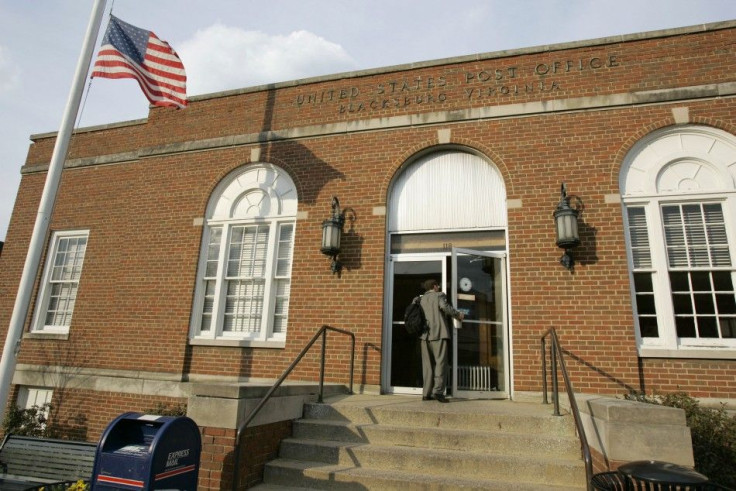USPS Nearing Default; Seeks Help From Congress

The U.S. Postal Service promises to keep delivering the mail no matter what, but officials say the post office is broke -- and will default on payments due to the federal government soon if Congress doesn't step in with legislative help.
The post office's CFO says the company is cash-starved. He warned of default Friday, and publicly asked for help from Congress to address the dire situation.
The post office is losing business to the Internet, in a trend that is expected to only get worse. But the most pressing issue at the self-supported agency works to reshape in this new environment with a smaller operation is the $5.5 billion annual pre-payment the USPS is required to make to the federal government for retiree health benefits.
The payment is due to the federal government on Sept. 30.
The post office doesn't have the money, and it wants Congress to shift the burden of that annual payment from its books -- and fast.
"We are experiencing a severe cash crisis and are unable to continue to maintain the aggressive prepayment schedule," said Joseph Corbett, the USPS' chief financial officer, in a statement on Friday.
With its business in decline, as people increasingly use e-mail for letters and online services for bill-paying, the post office lost $3.1 billion in the third quarter, and warns it will default on payments to the federal government if Congress does not step in with help.
Total mail volume for the quarter that ended June 30 fell to 39.8 million pieces, a 2.6 percent drop from the same period the previous year. In the attempt to right-size, the postal service last month added 3,700 more retail locations from throughout the country to a consideration list for possible closure.
The postal service currently has 32,000 post offices and branches.
But post office cost cuts are apparently not coming fast enough, and the postal service says it will default on payments to the federal government unless Congress helps out. The postal service says it lost $5.7 billion during the nine-month period ending June 30, compared to a $5.4 million loss in the same period of 2010.
Congress is in recess until September after finally reaching agreement on the debt ceiling bill last week, but few in Congress want to touch the issue of this $5.5 billion annual payment the post office makes. The reason is simple: If Congress takes the $5.5 billion payment away from the USPS, the figure will show up on the federal government's balance sheet as more debt.
Lawmakers showed last week in difficult negotiations to raise America's debt ceiling above $14 trillion and find bipartisan agreement on how and where to reduce spending how hard it can be dealing with each and every billion dollar expense. Another $5.5 billion added to the deficit isn't likely to happen easily.
Because the USPS is not a government agency, but an independent, self-supporting government agency, it is required to make the $5.5 billion annual payment to the federal government made in advance for its retiree's health benefits -- since workers are in the federal retirement system.
The postal service is sensitive about the payment because losing $5 billion dollars like it did in 2010 wouldn't be such a big problem if not for the big legacy cost payment made annually to the federal government. Even in 2011, when the post office is bleeding cash and on track to lose $8 billion or more, the situation wouldn't be so dire if not for the $5.5 billion payment.
"Without the $5.5 billion pre-funding of future retiree's health care (which no other company or agency is required to do) the PO would have made a profit the last 4 years," commented a reader on a IBTimes story about USPS struggles.
The USPS has wanted to get the large annual payment off its books for some time. The U.S. Postal Service argues that the prepayment to the federal government for future retiree benefits is not an obligation of its competitors or of any government agency. USPS officials say the payment is based upon 2006 legislation that was passsed when mail volume was at its peak.
The USPS argues the payment figure was also set when the post office had more employees. Since 2006 the post office has shed 113,000 workers.
Still, without government action to address the figure, America's post office will likely default on its payment to the federal government. Also troubling is a November payment due to the federal government of $1.3 billion for worker's compensation. As it stands now, Postmaster Donohoe says the USPS will default.
"The Postal Service will not have the cash available to make both of these payments," Donohue told a House Oversight subcommittee looking into the issue earlier this year. "We need legislation this year to address that fact."
If Congress doesn't do anything to address the situation, Donohue says the mail will still get delivered.
"We will deliver the mail," he said. "The thing we will not do is pay the federal government."
Donohue says without changes to the laws requiring the post office to make such large payments to the federal government the post office "cannot survive as a self-finanancing entity."
© Copyright IBTimes 2024. All rights reserved.





















